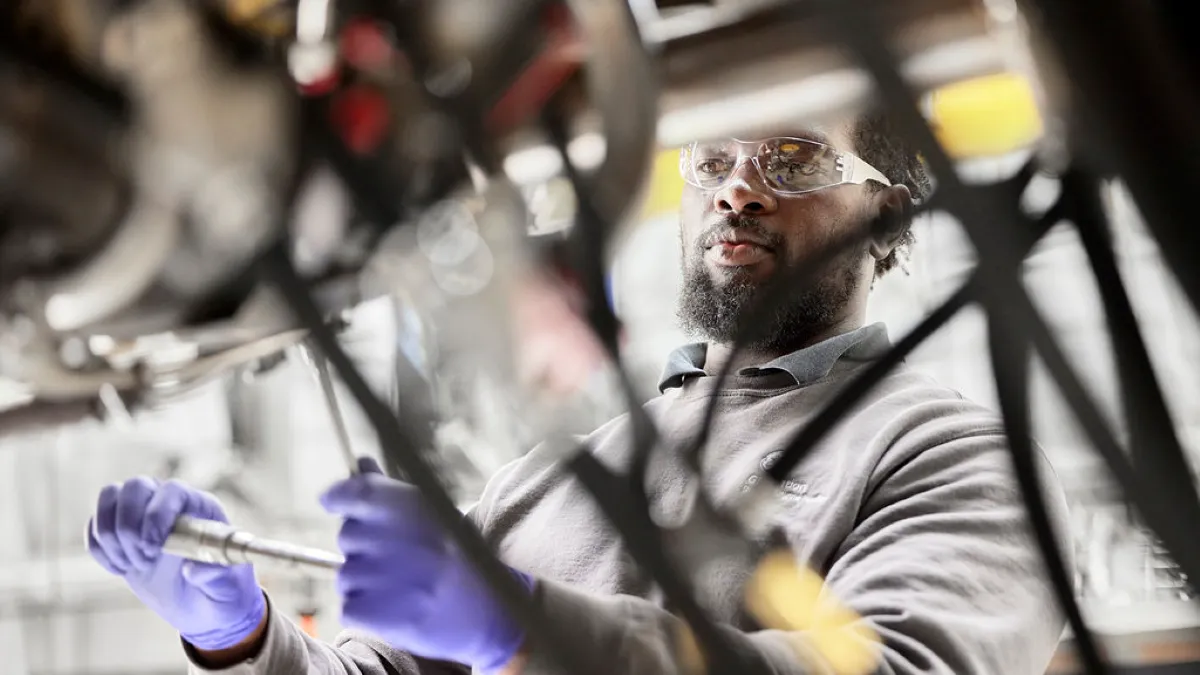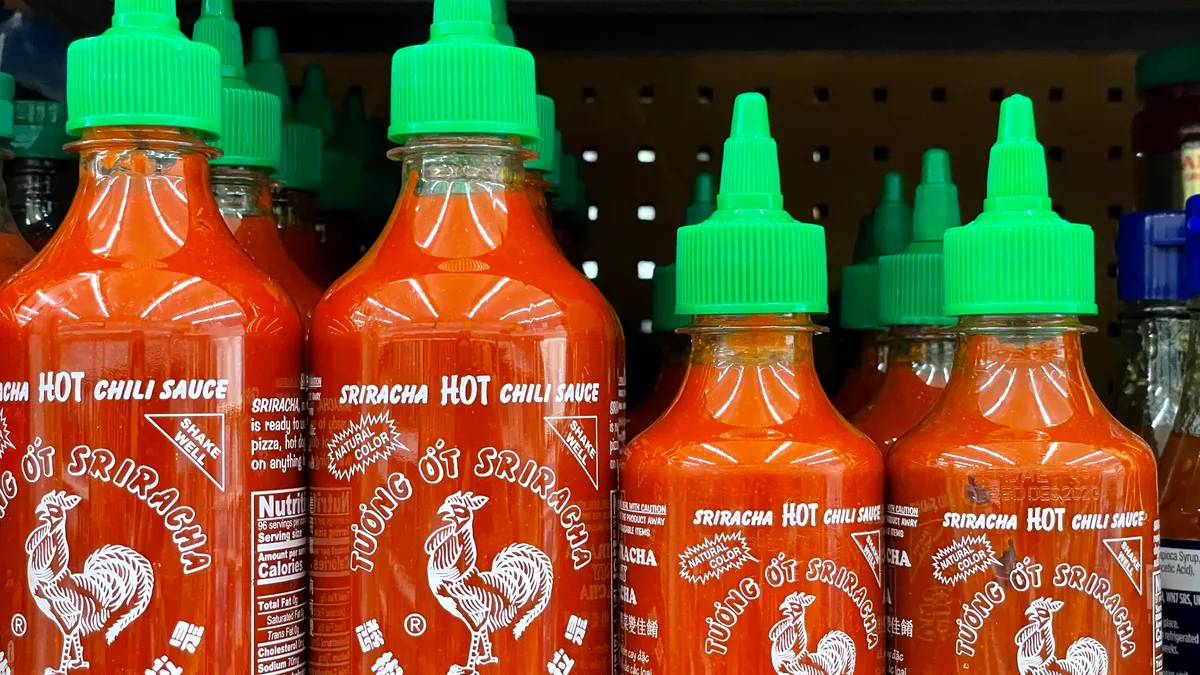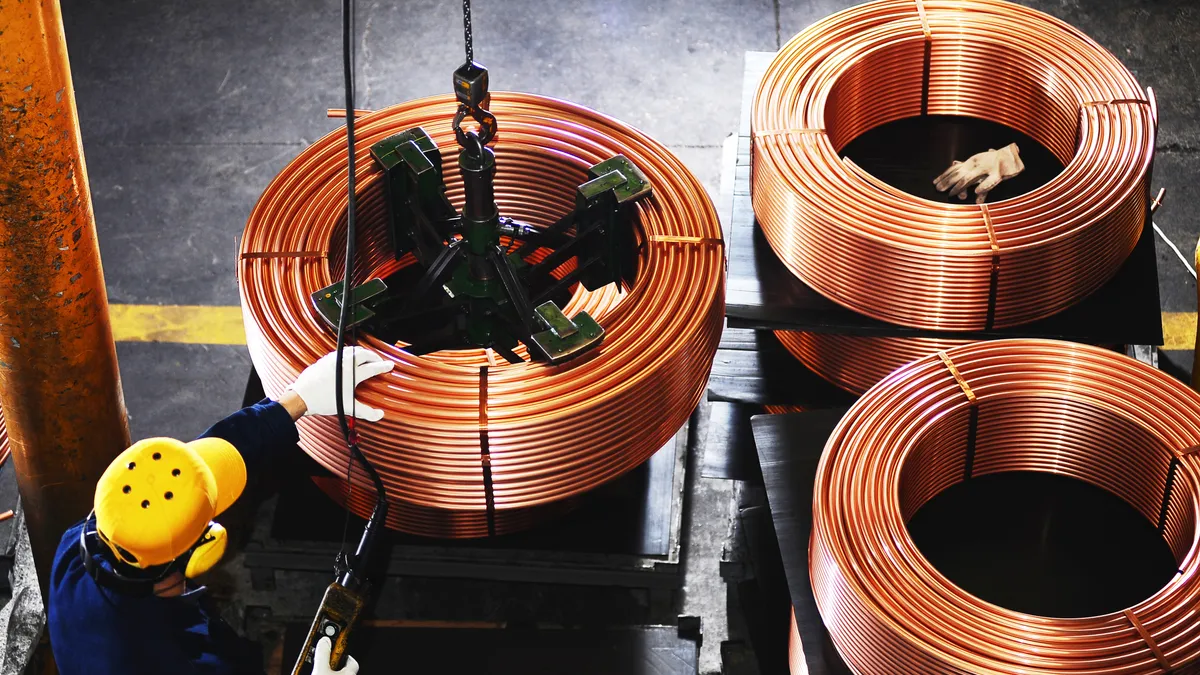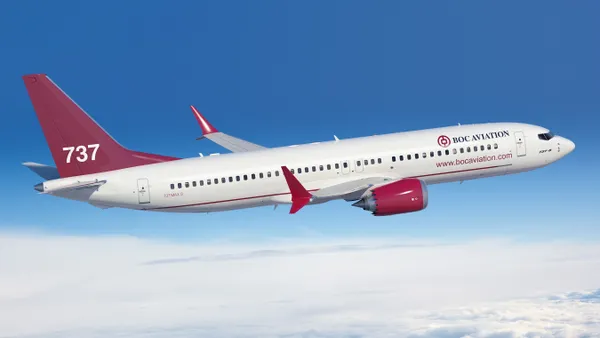Dive Brief:
- GE Aerospace will invest $650 million in its global manufacturing facilities and U.S. suppliers, the aviation engine maker last Tuesday.
- The company’s investment plan includes spending $450 million for new machines and equipment, building upgrades, new engine test cells and improved safety at 22 sites across 14 states as well as creating over 1,000 jobs.
- The remaining $200 million will support GE Aerospace’s U.S. suppliers and manufacturing facilities in Canada, Mexico, India and Europe.
Dive Insight:
Approximately 10% of the $650 million investment will go toward inspection equipment and tools that will help preserve quality, a GE Aerospace spokesperson said in an email to Manufacturing Dive.
The investments are part of GE Aerospace’s new lean operating strategy, dubbed Flight Deck, which the defense contractor launched last month. The new strategy would enable the company to strengthen its components, assembly and safety management system as well as cut costs.
“This is an investment in the future of manufacturing, ensuring we can continue producing high-quality, cutting-edge engines and services while meeting customer demand,” GE Aerospace Supply Chain Vice President Mike Kauffman said in a statement.
The Flight Deck operating model was used at the Boeing supplier’s facility in Terre Haute, Indiana, GE Aerospace CEO H. Lawrence Culp Jr. said at the company’s Investor Day March 7.
The Terre Haute facility, one of the sites to receive part of the $650 million, manufactures the leading edge aviation propulsion (LEAP) turbine engine’s center frame for the Airbus A320neo and the Boeing 737 Max.
The site was struggling to ramp up LEAP center frame production, causing on-time delivery issues. Yet after putting Flight Deck in place, the Terre Haute facility’s (cut) on-time delivery progressed and productivity improved by 50%, Culp said.
“We're taking FLIGHT DECK to Gemba to those points of impact to make sure we can identify constraints, get to root cause and solve them. We may contain an issue in the short term while looking for longer-term fixes,” Culp said.
Still, over 80% of GE Aerospace’s delivery challenges are rooted in its supply chain, he added.
“Most of the $100 million GE Aerospace is investing in its external supplier base will provide specific tools and customized dies needed to produce castings and forgings that later become engine components,” a GE Aerospace spokesperson said in an email to Manufacturing Dive. “The injection into its supplier base, more than double last year’s amount, ensures suppliers are using the newest tools to produce parts, further reducing the possibility that defects occur.”
The investment news comes as GE Aerospace prepares to split from its parent company, General Electric. The industrial conglomerate’s board of directors approved the spin-off last month and GE Aerospace, formerly GE Aviation, will be independent on April 2.
“These investments are part of the next chapter for GE Aerospace, supporting cutting-edge equipment and safety enhancements that will help us meet our customers’ growing needs,” Culp said in a statement.












